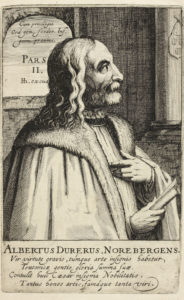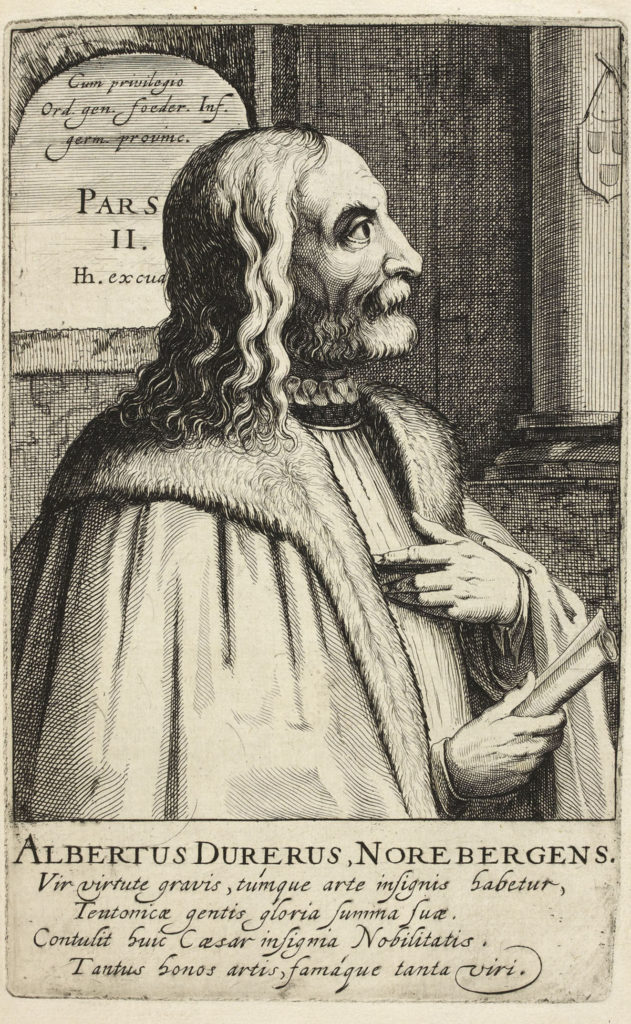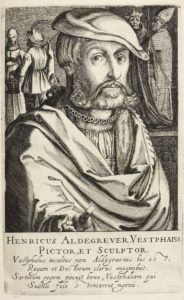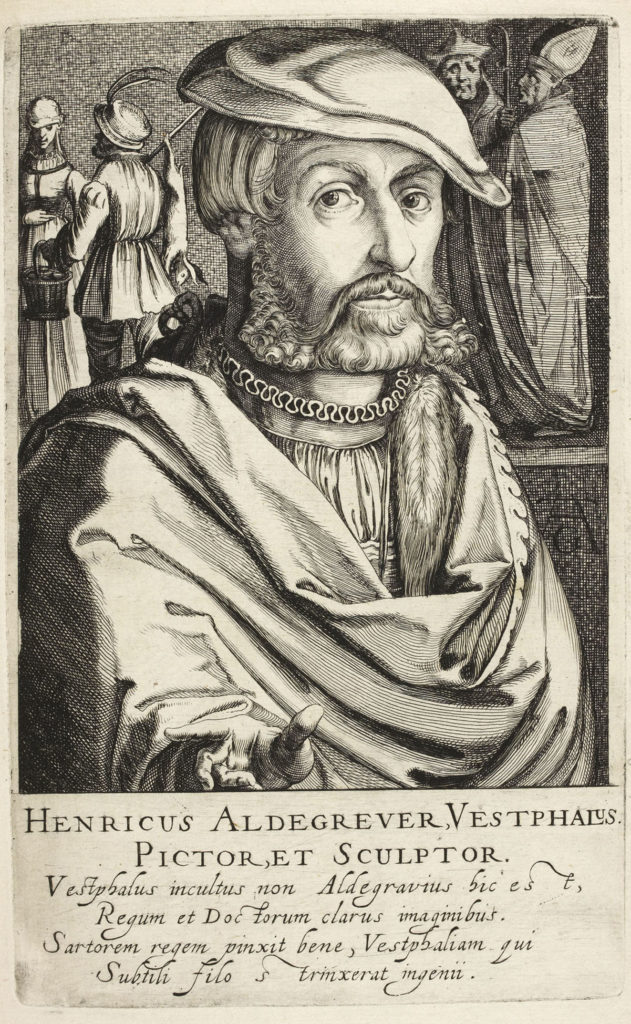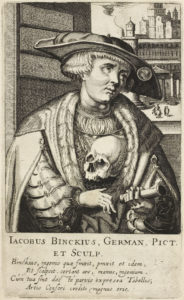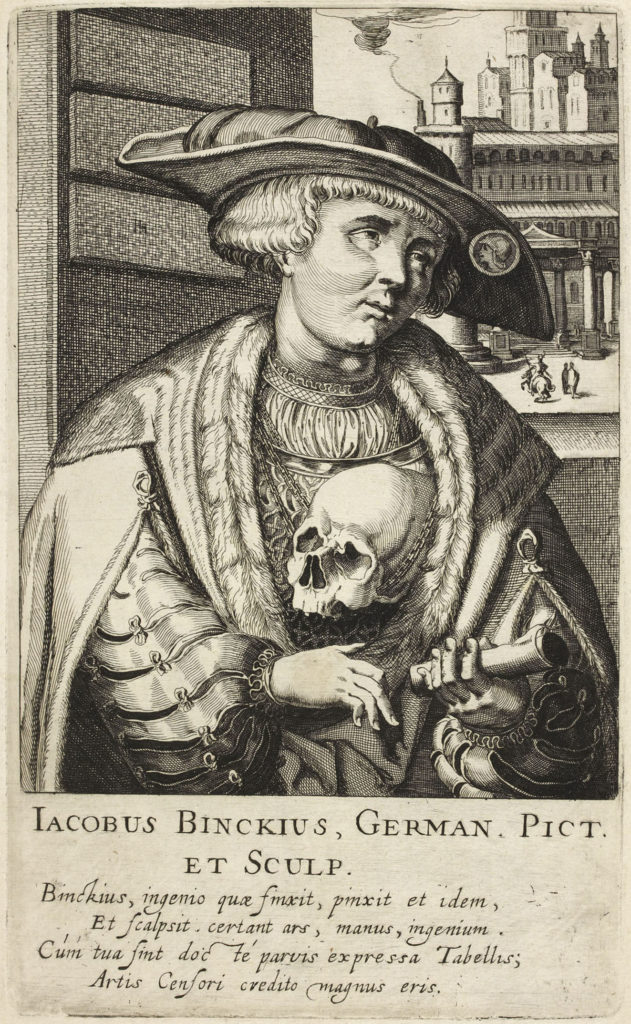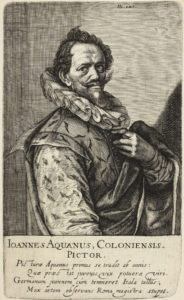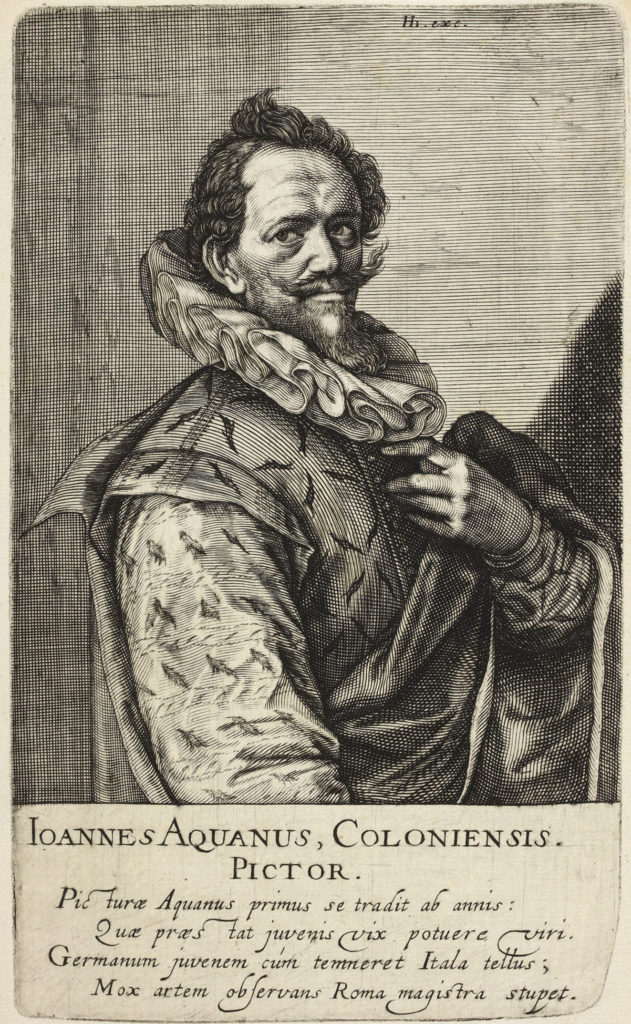Geographical Locations in Texts: Greater Germany.
4 people in this category.
Footnotes:
- Perhaps better to translate “German”.
- Can be translated as “Caesar” Cf. note on “Emperor” on the text for 33. Jan Vermeyen.
- Jan van Leyden
- “ingenio... finxit”. Cf. the texts on 67. Maarten van Heemskerk, “finxit qui ingenio”; 83. Christian van den Queborn, “fingit at ingenium”; 111. Cornelius Ketel, “finxerat ingenio”. The combination is common enough in classical Latin (Cicero, Seneca, etc.)
- Does the author here mean “engraved” by “expressa”? Compare note on text for 89. Joos van Winghe.
- I am here translating as if the author had written the ablative “censore” instead of the dative “censori”. For metrical reasons, we can be sure he wrote “censori”, but translating the dative would give the extremely awkward “you will be great for the censor of skill, if he is believed”. I have little doubt the author meant what I have written. – See also the note 5 on “pictorum censor” in Poem to the Lovers and Admirers of Pictures.
- Sic.
- Reading “primis” for the text’s impossible “primus”. Cf. also 141. Adam Elsheimer, “primis … ab annis”.


